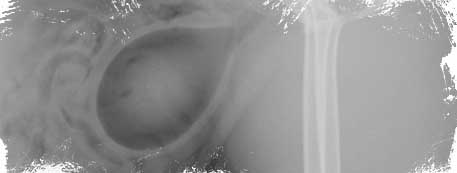Cystitis in cats is not uncommon, with 20% of cats suffering an episode during their lifetime. Feline urinary tract inflammation is also known as Feline Lower Urinary Tract Disease (FLUTD) and Feline Urologic Syndrome (FUS) and has a variety of causes and symptoms.
Clinical Signs
Very often feline cystitis causes your cat pain and irritation when he urinates and he will often be seen going to the toilet more often. A serious and potentially fatal complication of this can result in blockage of the urinary system. Urine is not passed in spite of repeated attempts and the bladder fills with urine. This is an emergency situation, please call us as soon as possible for advice.
Other signs of cystitis could result in your cat urinating in inappropriate places in the house. He might not just be stressed and marking his territory.
If you notice your cat looking uncomfortable or distraught with any of these symptoms or if you are in doubt, please seek veterinary advice for your cat straight away!
Causes
There are many factors that influence whether a cat develops cystitis. It is a multi factorial problem and treatment will need consideration of their Age, Gender, Lifestyle, Diet, Stress, Water Intake, Activity and Concurrent disease.
Diagnosis
Diagnosis can often be made from a good history. However, a urine sample is often required and imaging of the urinary tract with ultrasound can give information about if the bladder contains stones or crystals and the thickness of the bladder wall. Blood tests can help to tell if there is kidney disease or diabetes which are two diseases that can increase the incidence of cystitis
Feline Cystitis Treatment
Treatment depends on the severity of the problem and also requires the underlying causes to be addressed.
In the most serious of cases your cat may need to anaesthetised, the urethra catheterised to relieve the blockage and even the bladder opened to remove any stones. Antibiotics may be prescribed but in many cases, the cystitis cats are prone to getting is not associated with infection.
Diet is a very key part of ongoing treatment strategies and very often a special prescription diet will be recommended to help prevent recurrence.
Many cats that experience cystitis have overt or sub-clinical stress in their lives. Strategies to reduce stress can dramatically help prevent recurrence of this disease. Other products such as a Feliway diffuser may help to reduce this stress.
Nutritional supplements that contain Glucosamine are also supposed to help prevent the recurrence and the severity of future episodes.
If your cat experiences signs of cystitis they should be seen by a vet to ensure an emergency situation is not developing. Most cases resolve within 48 hours but can be a repeating problem in many cases, that requires a joined up approach to their diet, environment and activity. Please call if you want any additional advice.



